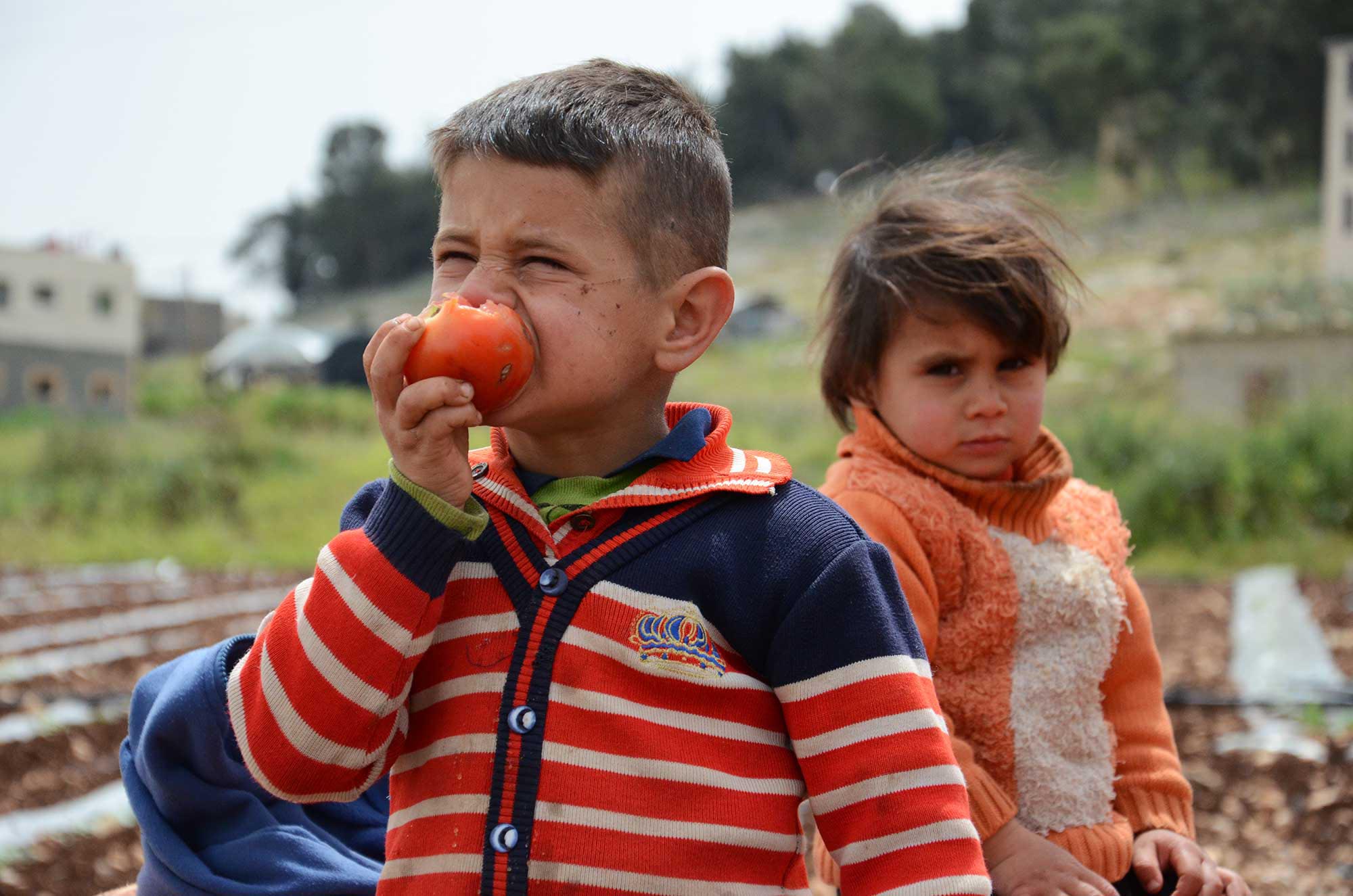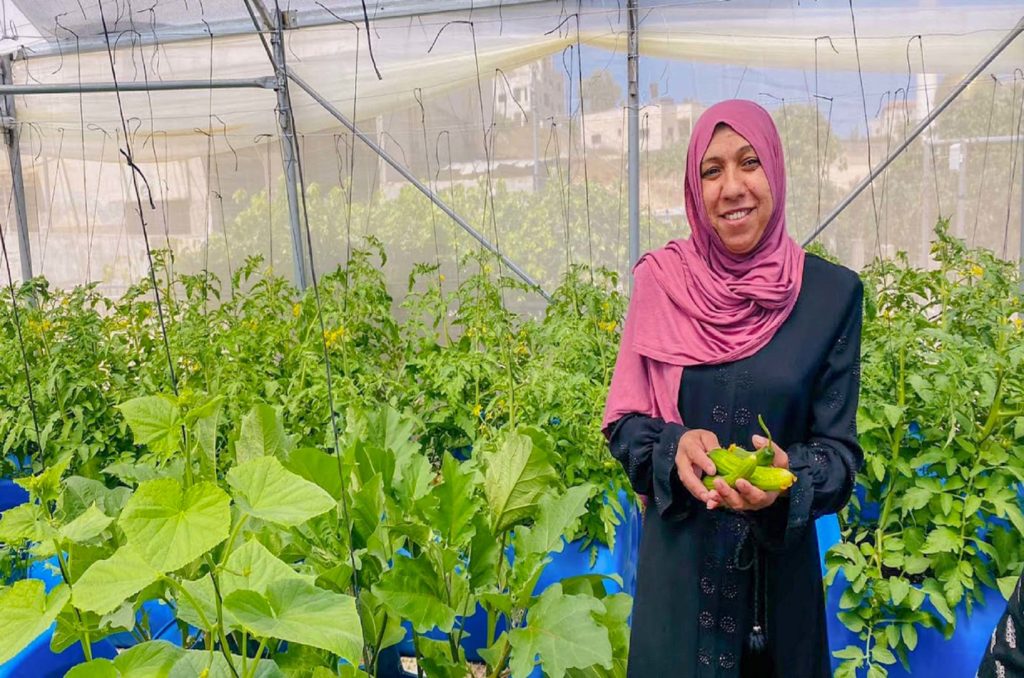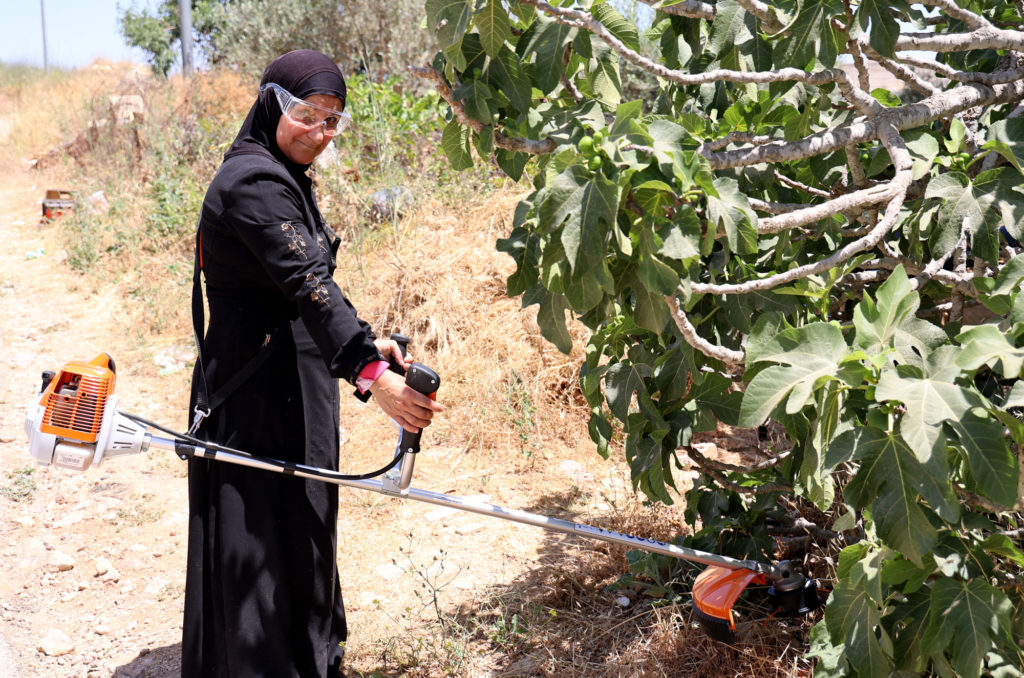Apr, 2015
“A grain of soil equals the entire world to me.”
That is how West Bank farmer Imad Musleh describes his deep-rooted love for the land that has nurtured, fed and clothed him, his siblings and children.
Imad is a diligent farmer who grows an array of crops and rain-fed fodder. His crops include cucumber, tomato, zucchini, eggplant and bell pepper. Relying on irrigated crops has drained his budget, which has pushed him to try different, more cost-effective types of irrigation.
In 2014, Imad was selected to receive a share of recycled water through Anera’s latest agriculture project. The Jenin Water Reuse Project is funded by the OPEC Fund for International Development (OFID) and Anera’s community of donors.
The program utilizes recycled water from the Jenin wastewater treatment facility to benefit 240 farming families in need of better irrigation methods for their land. It also introduces new fodder crops like alfalfa to help keep communities self-sufficient, ending their dependence on imported fodder.
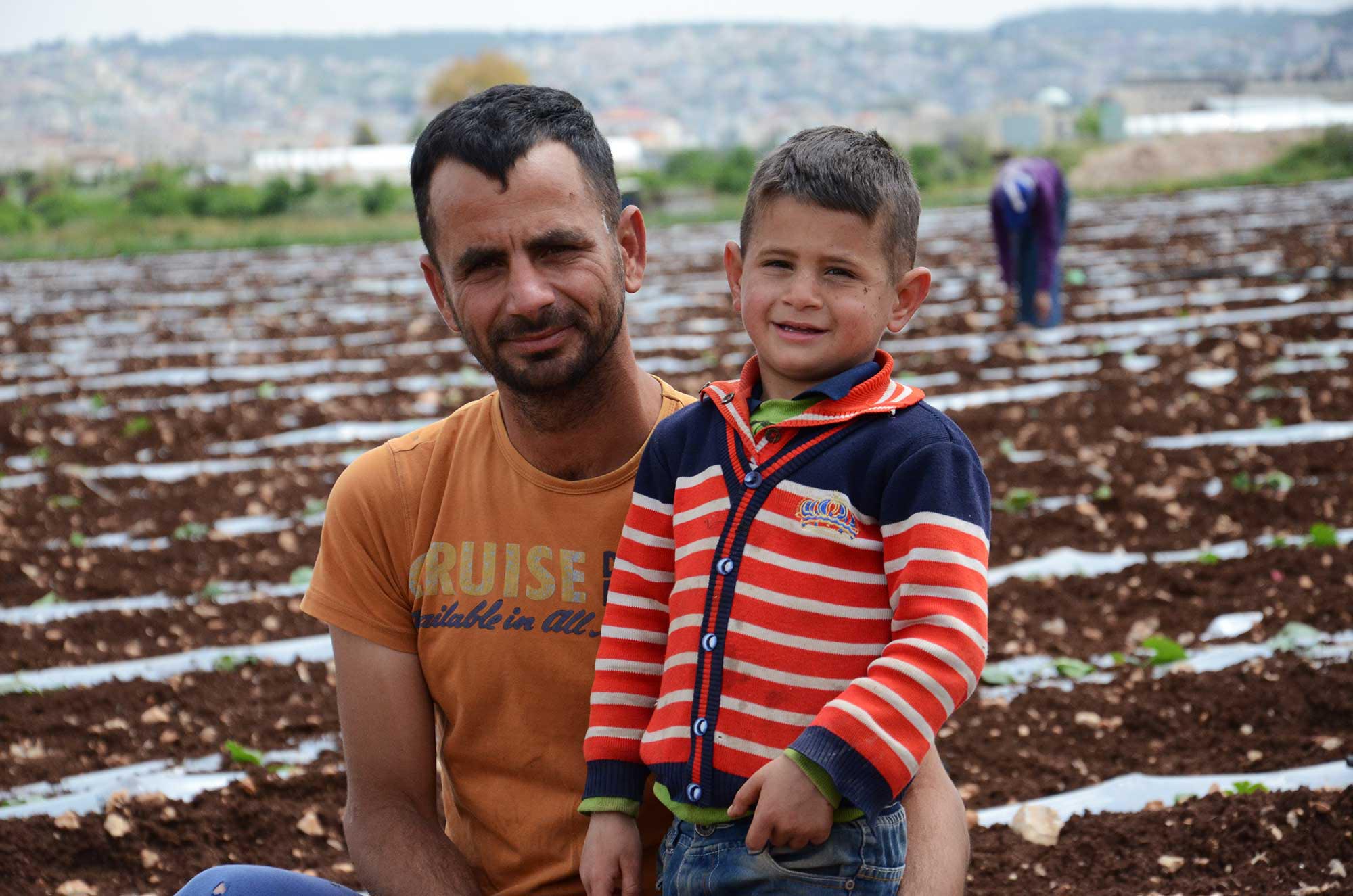

To make sure the water is handled and utilized safely and distributed equitably, Anera helped farmers like Imad establish the very first farmers cooperative to focus on wastewater irrigation in the West Bank. The growing membership receives training and awareness sessions organized by Anera. Additionally, Anera has provided the cooperative with needed equipment, water tank, and seeds.
Fifteen selected farmers had their first training session in Jordan, in coordination with the Jordanian Ministry of Agriculture and the National Center for Agriculture Research and Extention (NCARE). They went on a four-day educational tour through farms and wastewater treatment facilities, learning about the process and new crops to try. The training now continues in Jenin.
Farming in Palestine Combines Tradition and Innovation
Like most farmers in the District of Jenin, Imad is a farmer by inheritance and inclination. As a child, he always loved accompanying his father to his farm. There, he spent the majority of his childhood, playing around and learning how to take care of the land and crops.
“Helping with the land brought joy to me. I enjoyed my time and I also loved the freedom that it entailed, as my father was his own manager,” recollected Imad with a wide smile.
Now 40 years old and a father of four young children, Imad tries to cultivate a genuine love for the land in the hearts of his children. Like any proud father, he would like to see his children well-educated, and also invested in the land as they grow up. To him, farming and getting an education can go hand-in-hand, which is something he tries to teach his children.
“I want my children to be educated enough to run the land efficiently and competently, and find ways to develop it,” he explains. “I want them to have the best of both worlds.”
Imad shares a 25-acre piece of land with his older brother with one artesian well. He is also a sharecropper of another 50 acres of land with two artesian wells.


I want my children to be educated enough to run the land and find ways to develop it. I want them to have the best of both worlds.
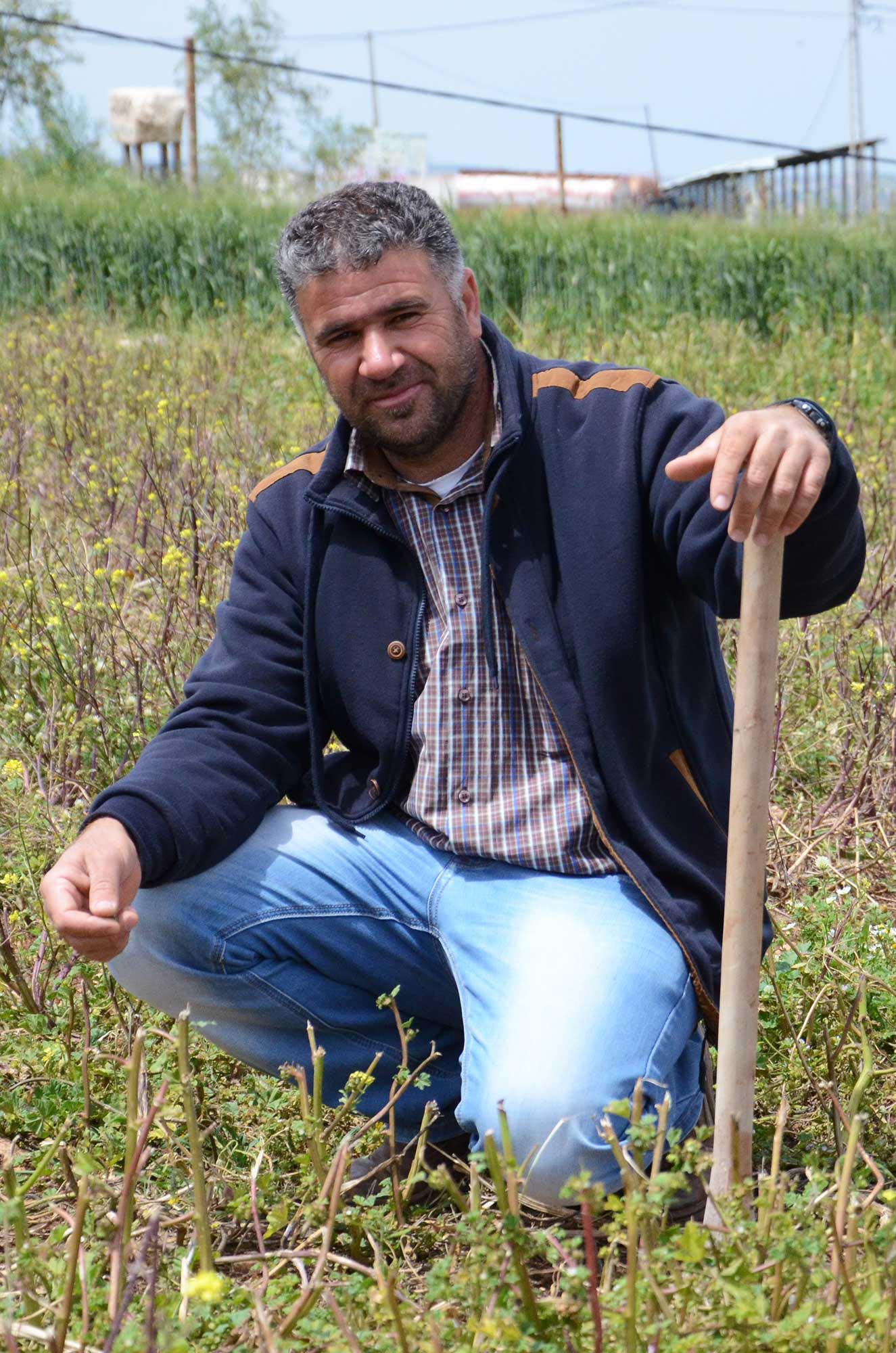

“In addition to the expense incurred from the water I buy, the water I get from the wells drains me financially because it takes money to extract and transport the water and pay for the maintenance of the wells,” explains Imad. It costs farmers like Imad between 50 cents and one dollar to draw one cubic meter (264 gallons) of water. He is confident that the new project will relieve him from most of his financial burden, allowing him to expand and develop.
His message to other Palestinian farmers is straight forward: “Take chances and learn from others’ successes. Whatever you give to your land, make from your heart, and rest assured that it will pay you back in folds.”
